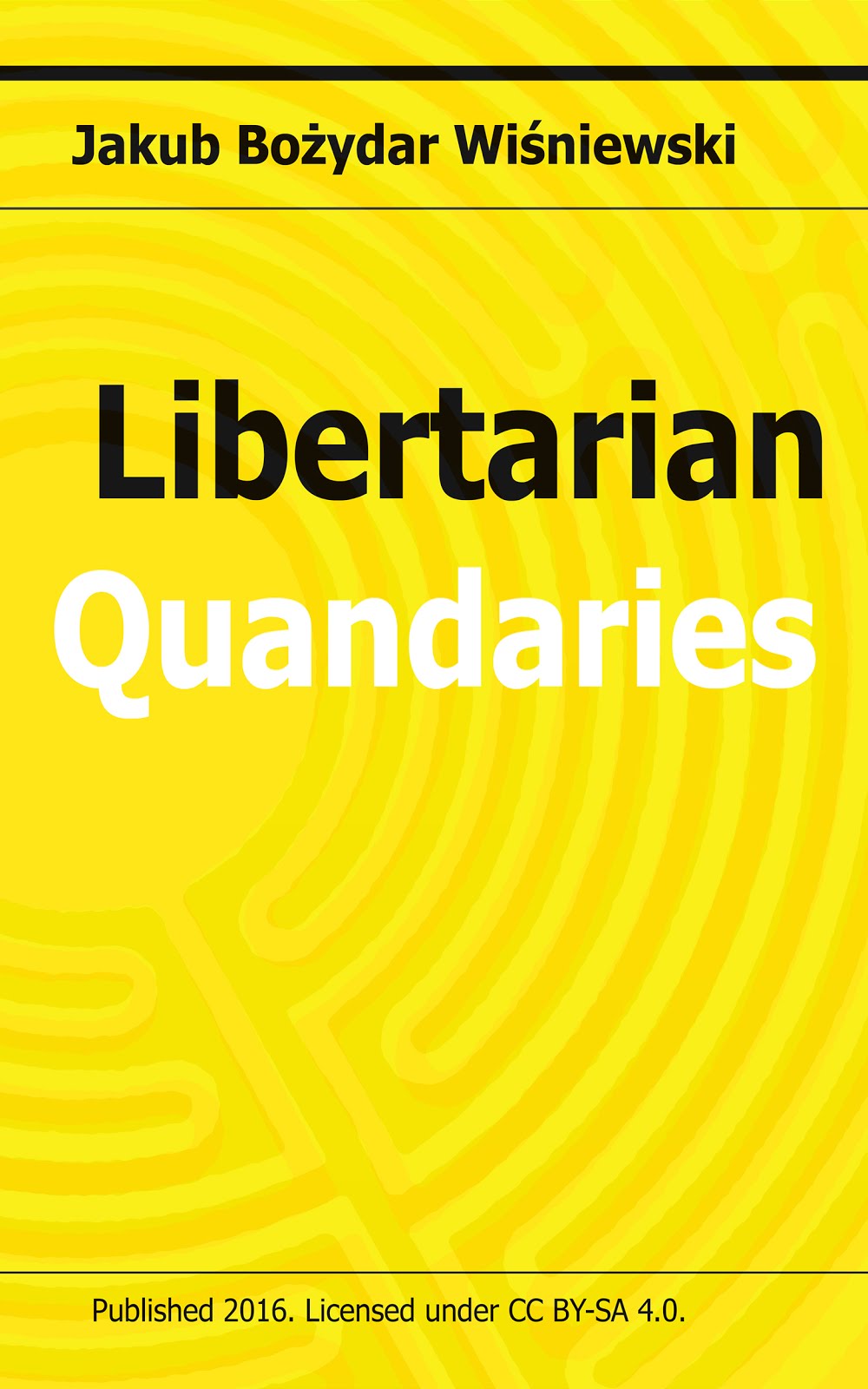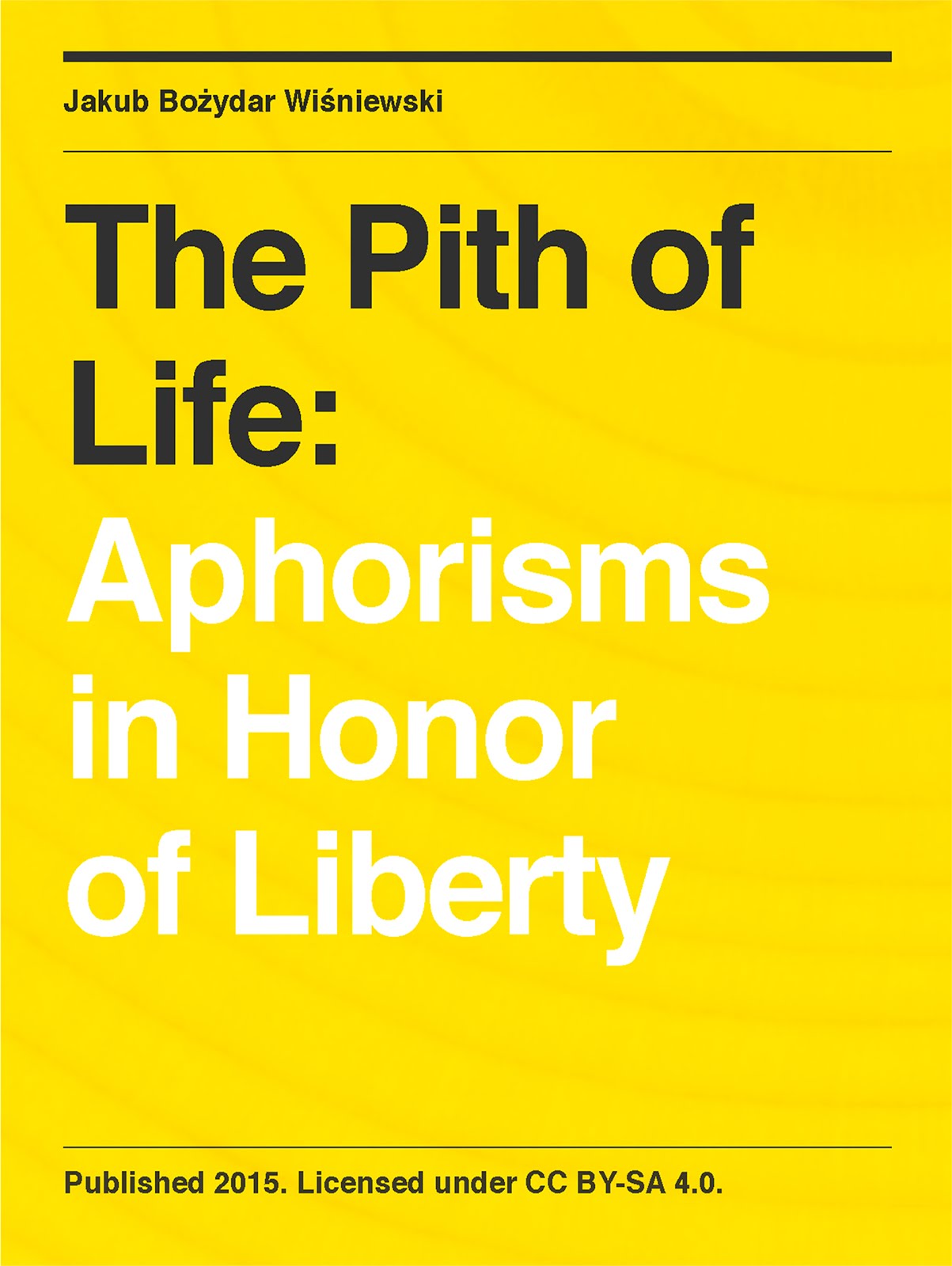Thursday, April 25, 2013
A Frightening Scenario That Will Never Happen
What if marauding warlords took over the world, divided it into separate dominions, imposed exploitative levies on every productive inhabitant of the land they controlled, built a vast infrastructure of roads to acquire easy access to their serfs, created an immense apparatus of propaganda designed to brainwash the serfs into believing that only under the rule of the warlords can they be free men and women, destroyed their dignity, self-reliance, and natural communal bonds by a system of periodic handouts, and finally blurred the distinction between themselves and the serfs by inviting the latter to join the ranks of the former, thus initiating a great, neverending spectacle of everyone trying to live at the expense of everyone else in a vicious cycle of mutual theft and collective hatred? What a terrible thought! Thank God we have democratic governments and welfare states to save us from such scenarios.
Sunday, April 21, 2013
Can Artificial Scarcity of Data Be Economically Beneficial from the Anti-IP Perspective?
Data is not scarce, but it can be made artificially scarce by: 1) coercive regulation 2) unique individuation and encryption. Resorting to 1) is immoral and hampers economic development, but resorting to 2) can be an instance of entrepreneurial innovation. Suggestion: the creation of what comes to be accepted as a digital non-fiat currency, where each currency unit is a unique string of encrypted data, is precisely an instance of entrepreneurially-created, economically beneficial artificial scarcity of data. A potentially surprising conclusion: economically beneficial artificial scarcity of data is not a contradiction in terms, even from a consistent anti-IP perspective.
Saturday, April 20, 2013
10 Reasons Why Libertarianism is the Way of the Future
1. It is the only social philosophy that places the highest value on the only common characteristic of all thinking beings - individual liberty.
2. It is the only social philosophy that takes individual rights seriously, consistently refusing to sacrifice them in the name of collective moral and legal fictions.
3. It is the only social philosophy that consistently refuses to glorify the allegedly "necessary" evils of institutionalized violence, aggression, and coercion, while not ignoring the problem of organizing effective protection and defense against these evils.
4. It does not see anyone as an inherent enemy, deemed unsuitable to participate in voluntary social cooperation due to his class, race, gender, or culture.
5. It exposes the alleged tension between spontaneity and orderliness as fundamentally false, and explains the essential complementarity between the two.
6. It explodes the myth that there is a tradeoff between efficiency and equity.
7. It is inclusive of all social philosophies in their peaceful varieties.
8. It can never be justifiably accused of having been tried and failed, since it does not propose any overarching grand scheme, its successes being as numerous as individual attempts of independent thinking beings to make the best of their natural liberty, and its failures as numerous as independent thinking beings who refuse to make such attempts.
9. It embodies the most mundane and platitudinous common sense, consistent with our most ordinary notions of interpersonal decency, known to most of us since our sandbox days - keep your mitts to yourself, don't punch others, don't grab other people's stuff, live and let live - thus being as non-ideological as any social philosophy can be.
10. It will never get old, since voluntary cooperation is endlessly creative and can assume an infinity of forms.
2. It is the only social philosophy that takes individual rights seriously, consistently refusing to sacrifice them in the name of collective moral and legal fictions.
3. It is the only social philosophy that consistently refuses to glorify the allegedly "necessary" evils of institutionalized violence, aggression, and coercion, while not ignoring the problem of organizing effective protection and defense against these evils.
4. It does not see anyone as an inherent enemy, deemed unsuitable to participate in voluntary social cooperation due to his class, race, gender, or culture.
5. It exposes the alleged tension between spontaneity and orderliness as fundamentally false, and explains the essential complementarity between the two.
6. It explodes the myth that there is a tradeoff between efficiency and equity.
7. It is inclusive of all social philosophies in their peaceful varieties.
8. It can never be justifiably accused of having been tried and failed, since it does not propose any overarching grand scheme, its successes being as numerous as individual attempts of independent thinking beings to make the best of their natural liberty, and its failures as numerous as independent thinking beings who refuse to make such attempts.
9. It embodies the most mundane and platitudinous common sense, consistent with our most ordinary notions of interpersonal decency, known to most of us since our sandbox days - keep your mitts to yourself, don't punch others, don't grab other people's stuff, live and let live - thus being as non-ideological as any social philosophy can be.
10. It will never get old, since voluntary cooperation is endlessly creative and can assume an infinity of forms.
Labels:
cooperation,
efficiency,
libertarianism,
liberty,
morality,
voluntariness
Saturday, April 13, 2013
Dziesięć powodów, dla których nawet najbardziej amoralny leseferyzm jest lepszy niż kierująca się nawet najlepszymi chęciami socjaldemokracja
1. Szczera pogoń za zyskiem jest zawsze lepsza niż szczere przypochlebianie się zazdrości i zawiści.
2. Pokojowy egoizm jest zawsze lepszy niż napastliwy altruizm.
3. Merytokratyczna nierówność jest zawsze lepsza niż zadufany w sobie egalitaryzm.
4. Dobrowolna segregacja jest zawsze lepsza niż przymusowa integracja.
5. Ostentacyjnie rozrzutny miliarder jest zawsze lepszy niż polityk popierający w dobrej wierze wydatki deficytowe.
6. Nieczuły fabrykant-wyzyskiwacz jest zawsze lepszy niż moralnie zaangażowany wyborca-ignorant.
7. Bycie nieżyczliwym wobec drugiego jest zawsze lepsze niż bycie życzliwym wobec drugiego przy użyciu zagrabionej własności trzeciego.
8. Żądza pieniądza jest zawsze lepsza niż żądza władzy nad cudzym pieniądzem.
9. Mizantropiczna ironia jest zawsze lepsza niż humanitarne pustosłowie.
10. Droga do piekła nie jest wybrukowana samolubną obojętnością.
2. Pokojowy egoizm jest zawsze lepszy niż napastliwy altruizm.
3. Merytokratyczna nierówność jest zawsze lepsza niż zadufany w sobie egalitaryzm.
4. Dobrowolna segregacja jest zawsze lepsza niż przymusowa integracja.
5. Ostentacyjnie rozrzutny miliarder jest zawsze lepszy niż polityk popierający w dobrej wierze wydatki deficytowe.
6. Nieczuły fabrykant-wyzyskiwacz jest zawsze lepszy niż moralnie zaangażowany wyborca-ignorant.
7. Bycie nieżyczliwym wobec drugiego jest zawsze lepsze niż bycie życzliwym wobec drugiego przy użyciu zagrabionej własności trzeciego.
8. Żądza pieniądza jest zawsze lepsza niż żądza władzy nad cudzym pieniądzem.
9. Mizantropiczna ironia jest zawsze lepsza niż humanitarne pustosłowie.
10. Droga do piekła nie jest wybrukowana samolubną obojętnością.
Labels:
etatyzm,
kapitalizm,
leseferyzm,
liberalizm,
socjaldemokracja,
socjalizm
Sunday, April 7, 2013
If You Want Peace, Stop Loving War and Violence
This link leads to the list of people known throughout history as "The Great". This link leads to the list of winners of Gallup's annual most admired man and woman poll. The overwhelming majority of people on those lists are rulers - kings, emperors, tyrants, dukes, tsars, presidents, and prime ministers - that is, professional wielders of institutionalized violence, aggression, coercion, subjugation, expropriation, and oppression, as well as professional peddlers of propaganda, demagoguery, and tribal hatred.
If you ask why people can't just get along and cooperate peacefully, without wars, enslavement, genocide, tribal prejudice, and ceaseless attempts to grab each other's property, then here is the answer: they actually like all these things, their protestations to the contrary notwithstanding.
In a world where there are so many individuals to respect, admire, and emulate - entrepreneurs, inventors, scientists, artists, thinkers, and humanitarians - the majority of people consistently lavish the greatest praise and admiration on warlords, warmongers, tyrants, oppressors, propagandists, and demagogues. In conclusion, it's no surprise that the world is undersupplied with liberty, peace, and cooperation, since the greatest demand among people has consistently been for their very opposites.
If you ask why people can't just get along and cooperate peacefully, without wars, enslavement, genocide, tribal prejudice, and ceaseless attempts to grab each other's property, then here is the answer: they actually like all these things, their protestations to the contrary notwithstanding.
In a world where there are so many individuals to respect, admire, and emulate - entrepreneurs, inventors, scientists, artists, thinkers, and humanitarians - the majority of people consistently lavish the greatest praise and admiration on warlords, warmongers, tyrants, oppressors, propagandists, and demagogues. In conclusion, it's no surprise that the world is undersupplied with liberty, peace, and cooperation, since the greatest demand among people has consistently been for their very opposites.
Labels:
aggression,
liberty,
peace,
power,
statism,
stockholm syndrome,
violence,
war
Subscribe to:
Posts (Atom)


